More than 120 members of the Leadership Institute (LI) gathered to celebrate its 20th Anniversary on Friday, May 17, in the Wisconsin Institute for Discovery. Past participants, facilitators and staff came from across the country bringing with them the spirit of those who couldn’t attend.
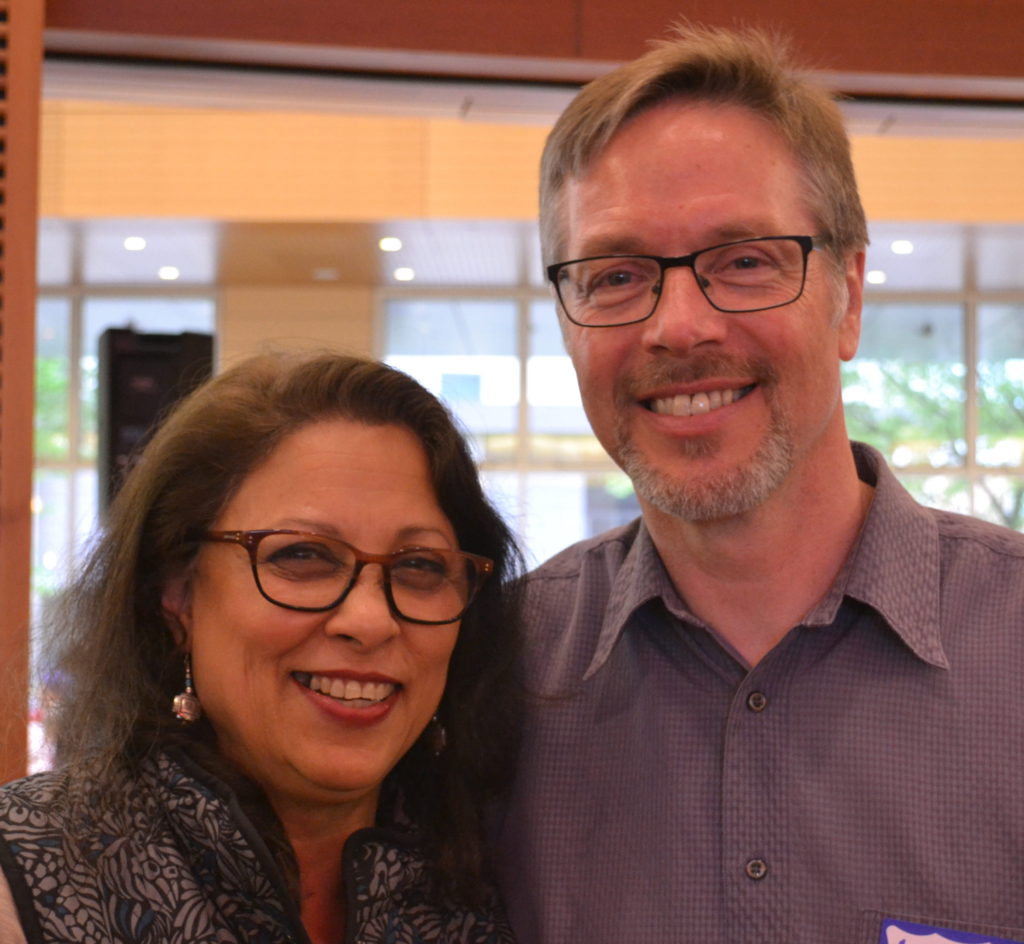
The Learning Communities for Institutional Change & Excellence (LCICE), is a unit within the Division of Diversity Equity and Educational Achievement (DDEEA), which has served to develop cultural fluency and culturally responsive practices for building an equitable and inclusive campus climate since 1998. In the fall semester of 1998 the first learning community of the Leadership Institute (LI), was launched for faculty, staff, graduate students and Madison community leaders.
Now a thriving community touching thousands of people, the initial skepticism toward the commitment required to make meaningful and permanent change has faded. Change takes time and it happens in community.
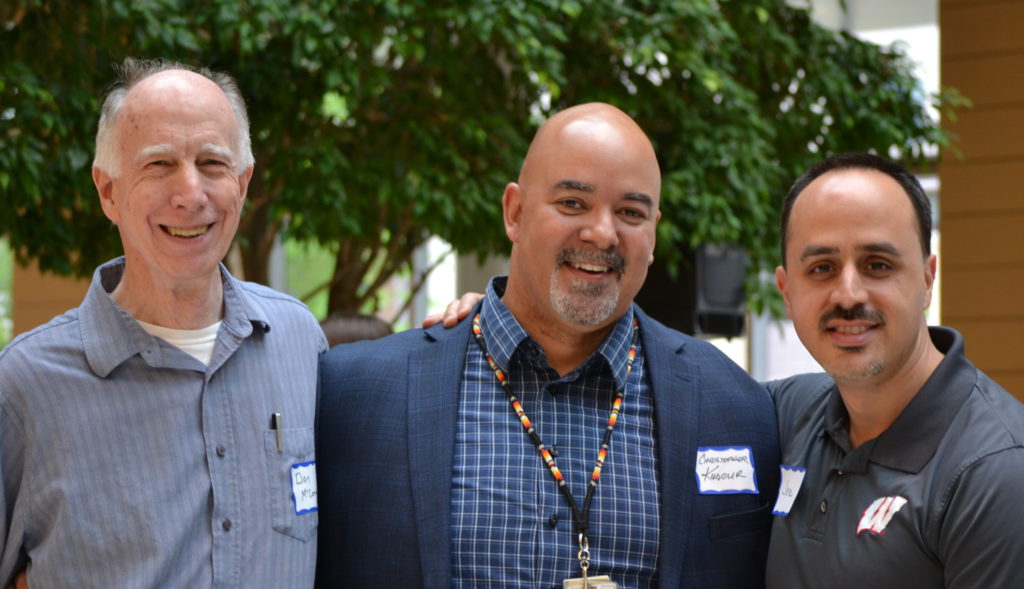
When UW-Madison began seeking educational ways to improve workplace, classroom and interpersonal relations across campus 20 years ago, it quickly became apparent that a one-time workshop or checklist wouldn’t work, said Seema Kapani, a chief architect of the Leadership Institute and its learning communities. It takes at least a year to effectively change the dynamics of human interaction for the long term, she said. Why? Human attitudes and interactions are extremely complicated, she explained, especially those requiring self-reflection, empathy and acceptance.
A dialogue-based cohort model was proposed for a learning community, the Leadership Institute (LI), which would provide a learning space for sustained exposure to divergent identities, experiences and viewpoints. Participants would meet weekly to engage in dialogue throughout the academic year engendering relationship and trust building. Through interactions with participants across all social identities, participants develop culturally responsive communication skill-sets and mind-sets.
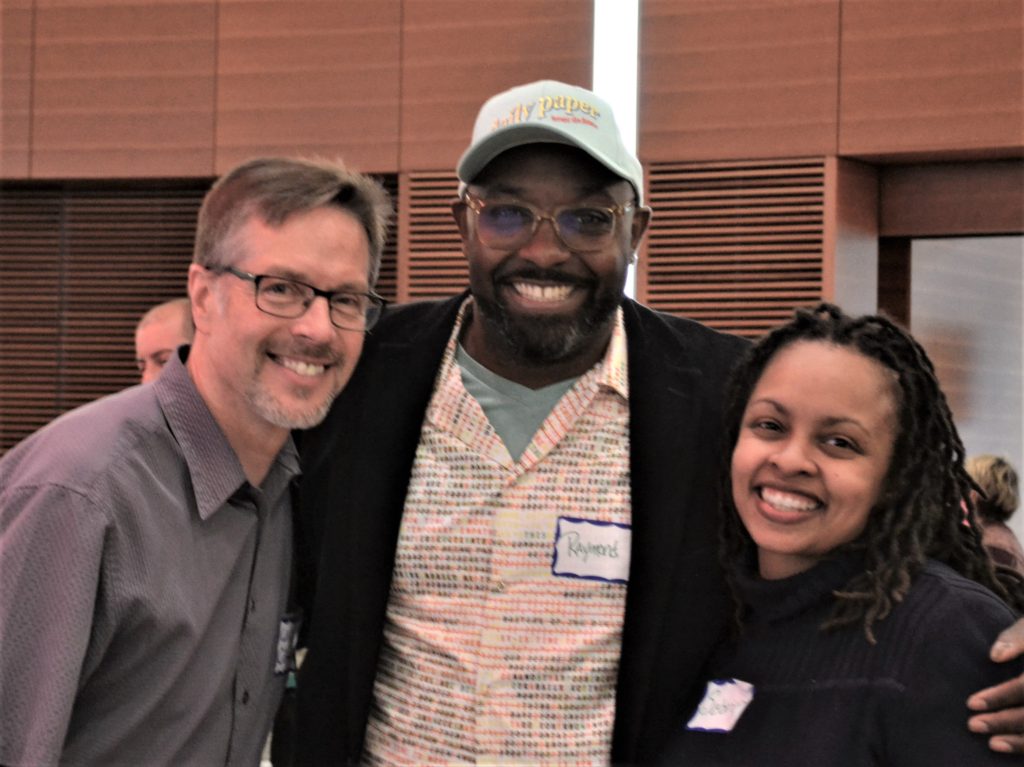
Leadership Institute is not training on how to manage and direct others, Kapani said. It’s a pivotal reinterpretation of what “leadership” typically means; a different way to start thinking about our interactions and relationships. Leadership that begins with understanding self and how we perceive and impact others.
Discovering and unlearning unconscious and pervasive misperceptions, assumptions, reactions and biases learned throughout our lives is a lifelong process, Kapani said. That learning process requires sustained dialog and interactions.
One of the six priorities in UW-Madison’s Campus Strategic Framework, titled For Wisconsin and the World, is to “Enhance diversity in order to ensure excellence in education and research.”
“At UW-Madison like many similar higher education institutions across the nation, the proposal to redefine leadership is a difficult task because when we talk about leadership and we think about roles and we think about titles,” Kapani said.
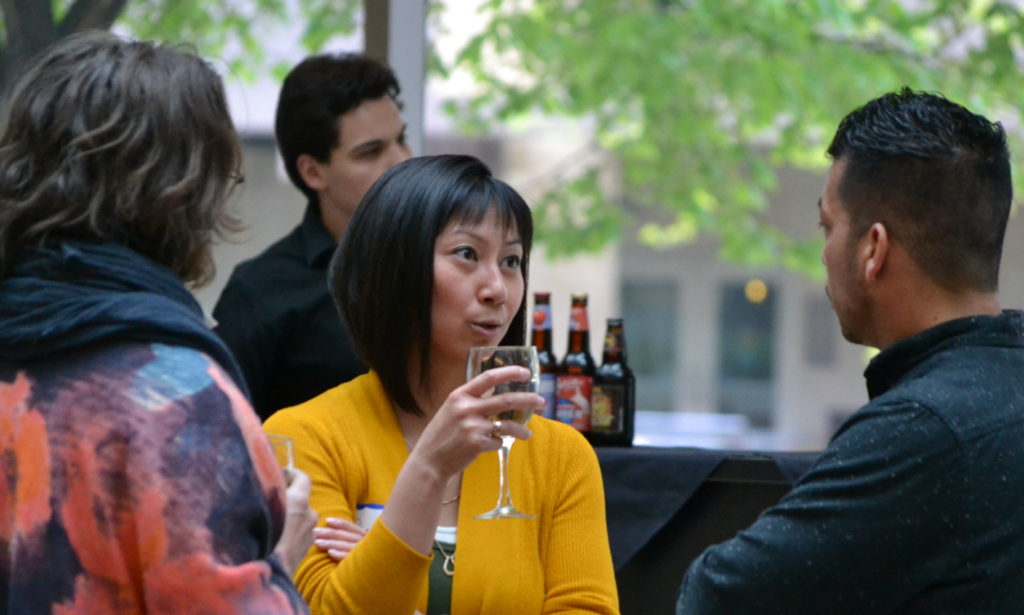
“We need to work in community – because human interaction doesn’t occur in isolation — led to something else,” Kapani said. The next hurdle was explaining what the weekly gatherings would cover. The topics required to move toward self-reflection would be challenging for some. This unlearning and learning process is essential for creating capacities to build equitable campus climate for all.
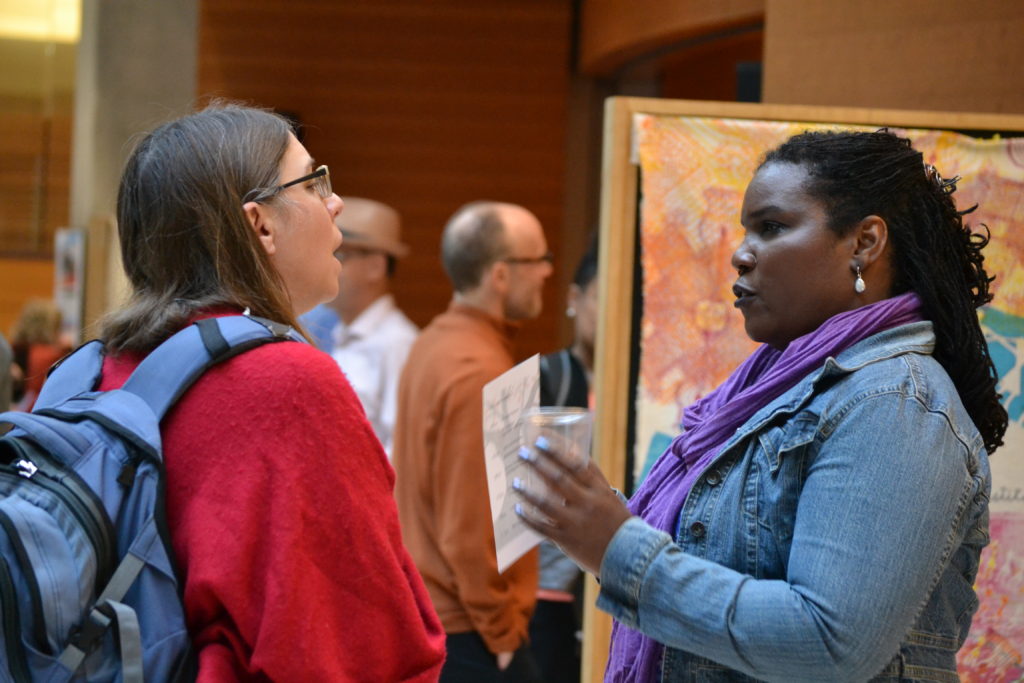
Improving campus climate — or any social climate involving human interaction — requires collective exploration on rethinking and redefining leadership, Kapani said.
To the credit of the university and its leaders who took a leap of faith, the first participants plunged into the commitment and gave “LI” a try.
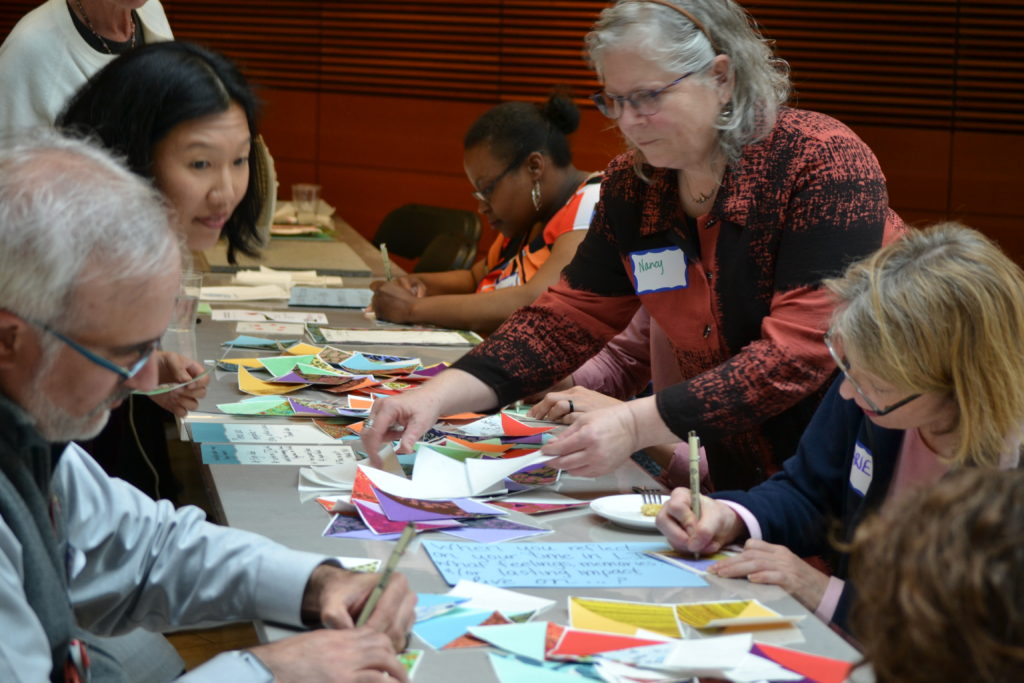
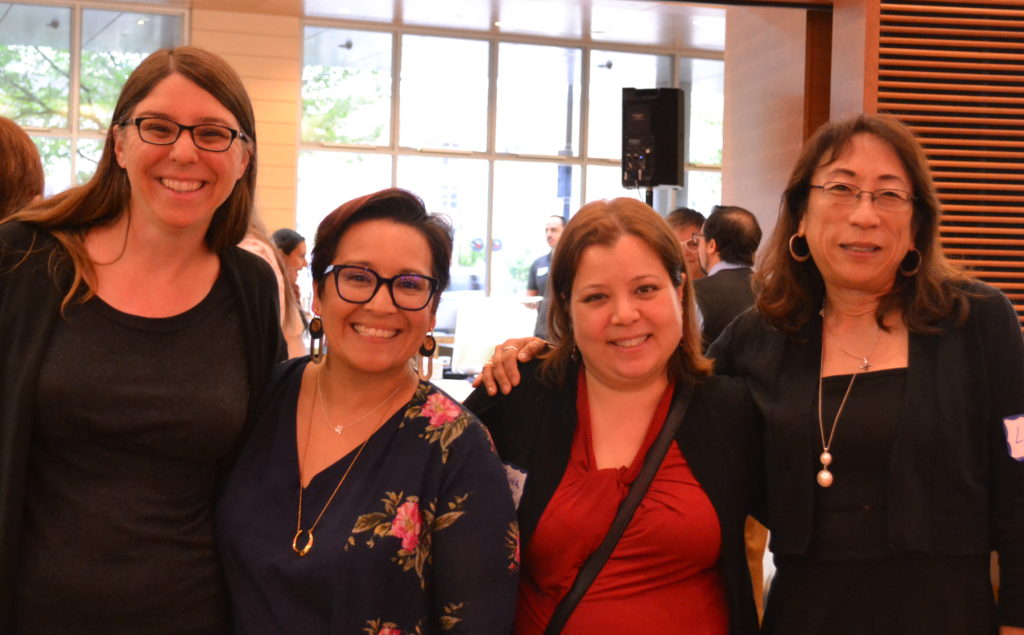
“So we turned the idea of leadership upside down to allow everyone to walk through the world like leaders, using our personal agency — our true selves,” Kapani said.
“Using an Appreciative Inquiry approach, we can really look at what is it that we wish to have more of that we don’t have now,” Kapani said. “We can ask ourselves ‘what is it that I can do today in community to help us move forward?’ That’s how the Leadership Institute was imagined. “
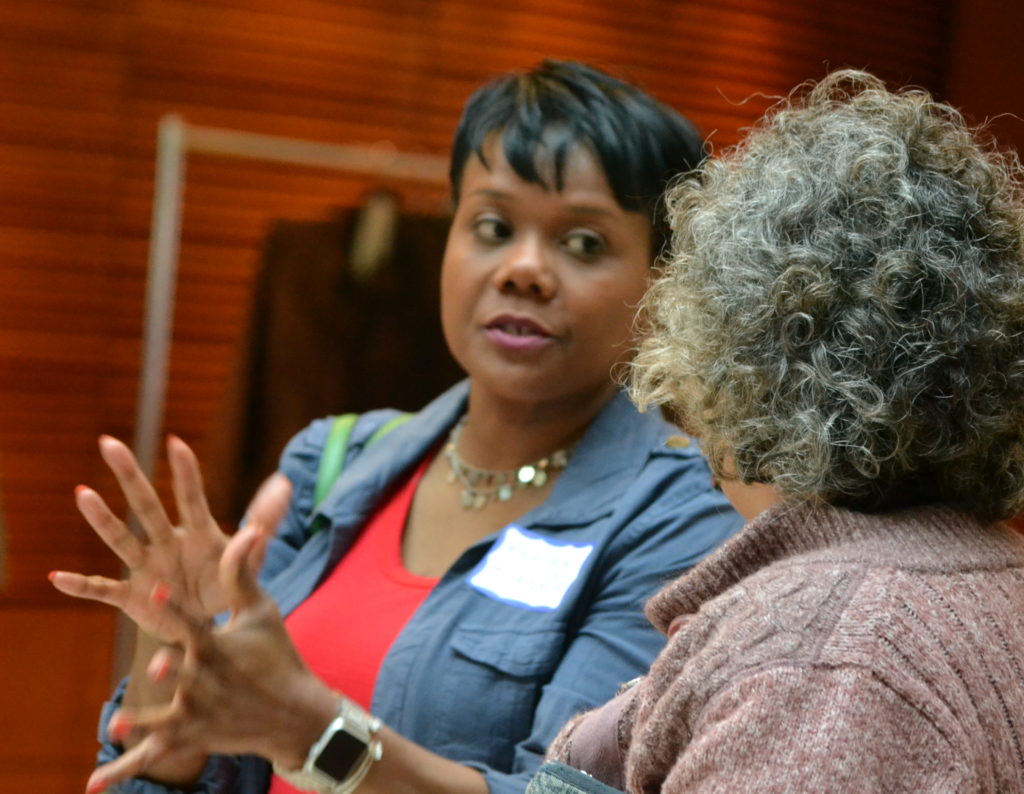
Leadership Institute participants agree that the work of personal change and continues for a lifetime once the awareness is awakened. Although the root of most human misunderstandings and resulting strife is the simple reality that people think differently – that’s not a problem as long as there’s a mutual understanding that they do.
“None of us can do this alone,” Kapani said.
The UW-Madison Learning Communities for Institutional Change and Excellence (LCICE) provide a forum for active participation in dialogue focused on creating working, learning, and teaching environments where everyone is heard, valued and included. Through dialogue, one learns how to engage in transformative changes of behaviors, policies, and procedures that collectively impact the campus climate for ALL community members.
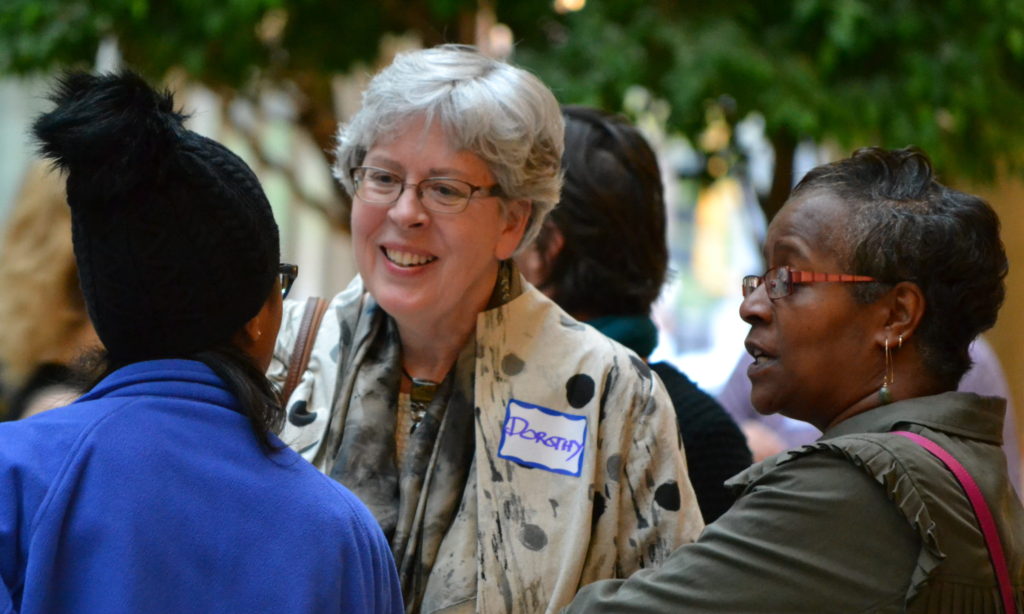
Laura Klunder, who participated in the original Learning Community cohort, said what she learned about self-examination of her identity and culture has led to the research and social work she is doing today. As an adopted South Korean child, she wanted to explore how she was separated from her homeland and culture. She is now a doctoral student in social work, using her experience in the international adoption system as an agent for change.
“This is how we began a lifelong journey to collective liberation,” Klunder said.
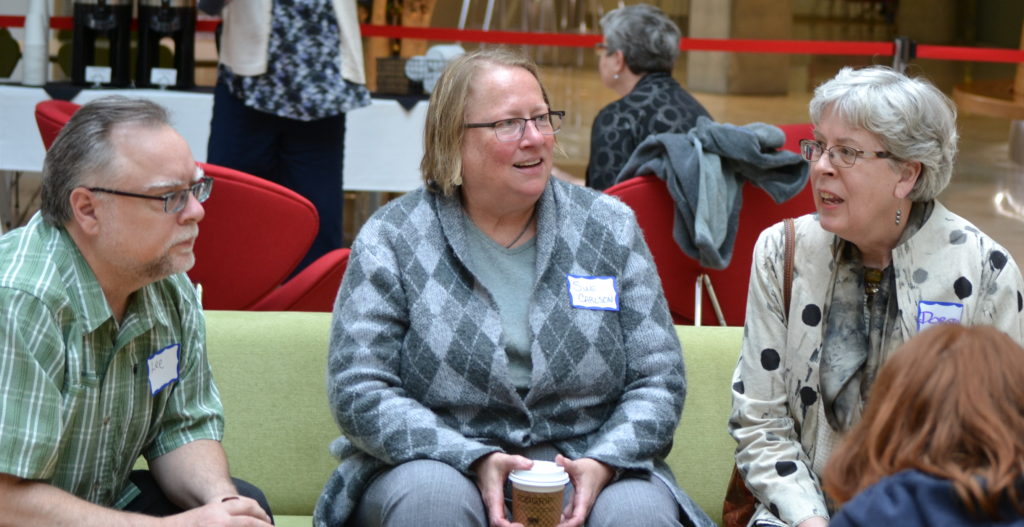
At that time, the early Leadership Community was an educational arm of the Office of Equity and Diversity a budding program serving the entire huge campus, Kapani said. Twenty years later, the LCICE programs have touched thousands through the personal agency of participants and thrived through the power of community as was hoped, she added.
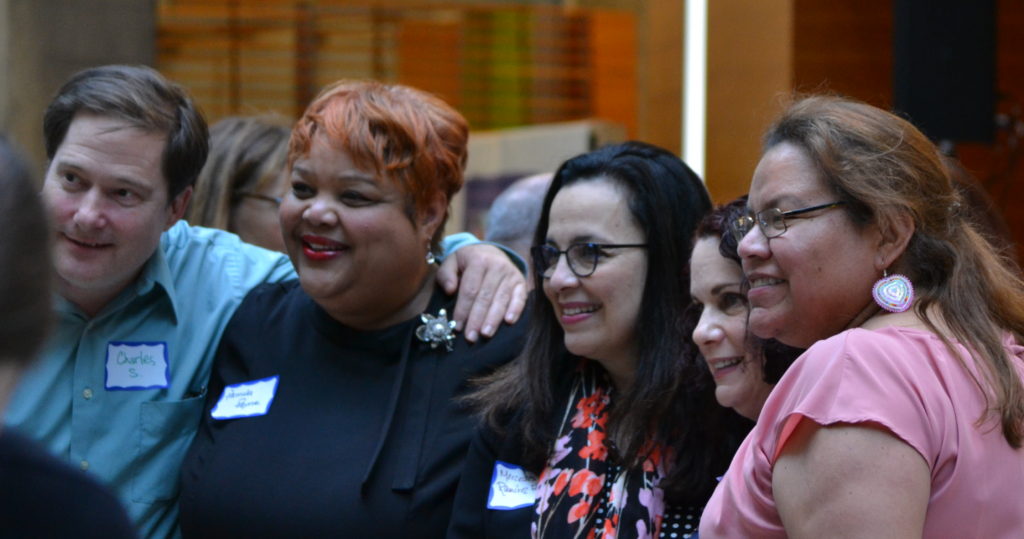
The Learning Community provided many participants with the connection and family they were searching for when they came to UW-Madison as graduate students or new employees. Jorge Rodriguez, a facilitator and former staff member who also came to the community as a graduate student, explained that LI transforms spaces that are hierarchical in nature and challenges them from a horizontal perspective.
The Leadership Institute (LI), launched in 1998, provides participants with a dialogue-based professional development opportunity. Participants engage in their own and other’s learning and unlearning process through readings, videos, podcasts, and personal stories throughout the academic year. In weekly meetings, participants co-create inclusive learning environments as they share experiences, confront assumptions, and deconstruct historically dominant social paradigms.
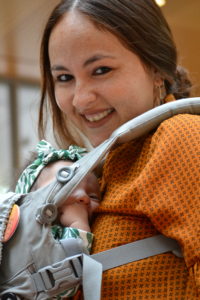
Feeling displaced and lonely as a new graduate student from Texas 20 years ago, Ida Balderrama-Trudell said one of the first people she met and began talking to about racial equity and awareness was involved in the Leadership Institute. She joined the graduate student Seeking Educational Equity through Diversity (SEED) community and was allowed to bring both her new baby and all of who she was into a space that crossed many assumed boundaries between graduate students, administrators and other campus community members, Balderrama-Trudell said.
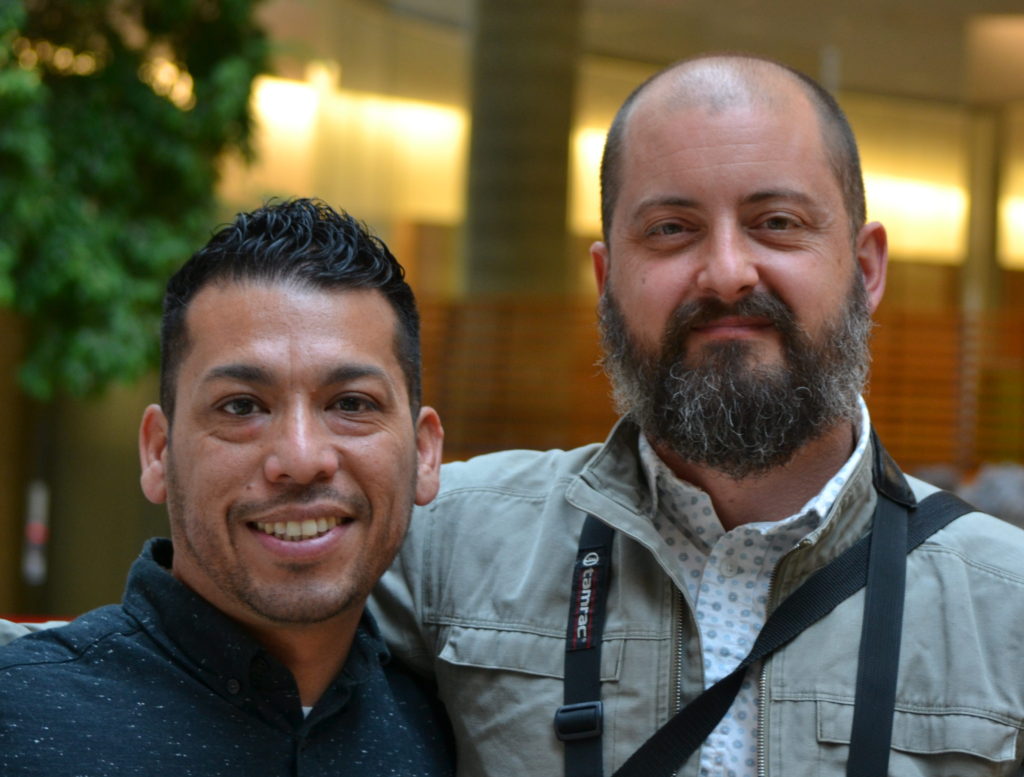
“It really changed the way I looked at this institution, and to this day it changes the way that I engage in spaces and it doesn’t matter who I am talking to or what title that they have,” she said.
The people you meet and learn with are the core of this work, she continued, and the importance of candid conversations and personal transformation is the hardest thing to describe to other people. And that is what the work is supposed to do – spread the community through the efforts and interactions of individuals in their daily lives.
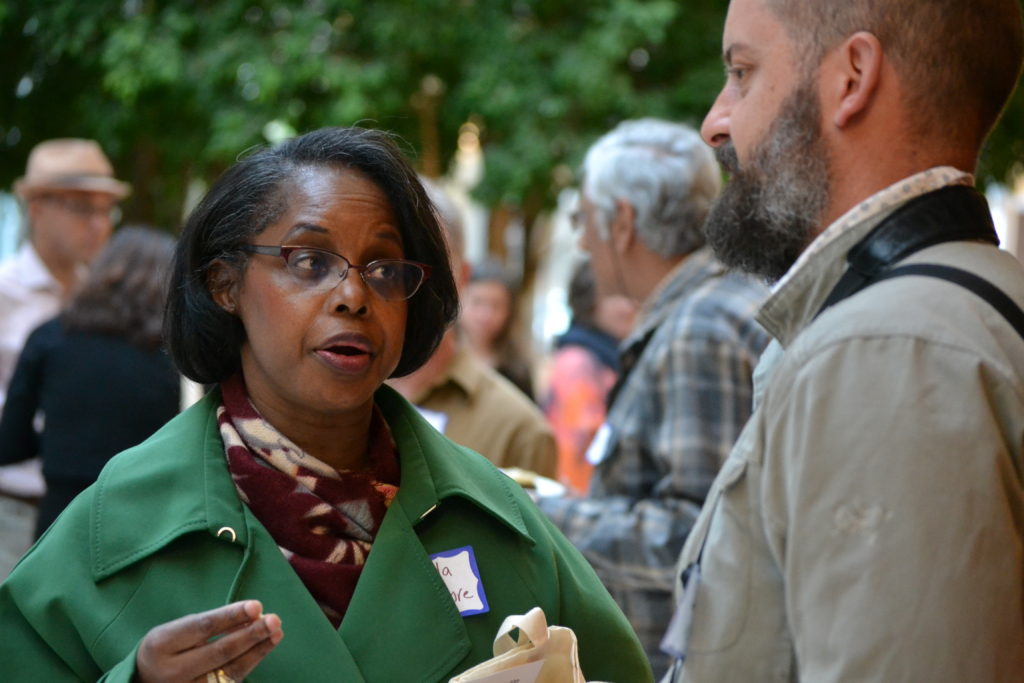
“Thank you to all of you,” said Balderrama-Trudell, “who have planted the seeds and continue to go out there and live in socially just ways and challenge themselves, challenge people who are in positions of power and lean into the hard work because in this time it is absolutely what we need. And to recognize the humanity and the love and the power that we hold is such a huge thing.”
In doing so, participants develop their personal leadership capacities to interact more effectively across multiple perspectives and social identities. Year-long exposure engenders relationship and trust building – a critical component to sustaining equitable, working, teaching, and learning environments for all. A commitment to diversity as a value embedded in the deepest fiber of the University requires it to be approached as a constant undertaking put into regular and repeated practice.
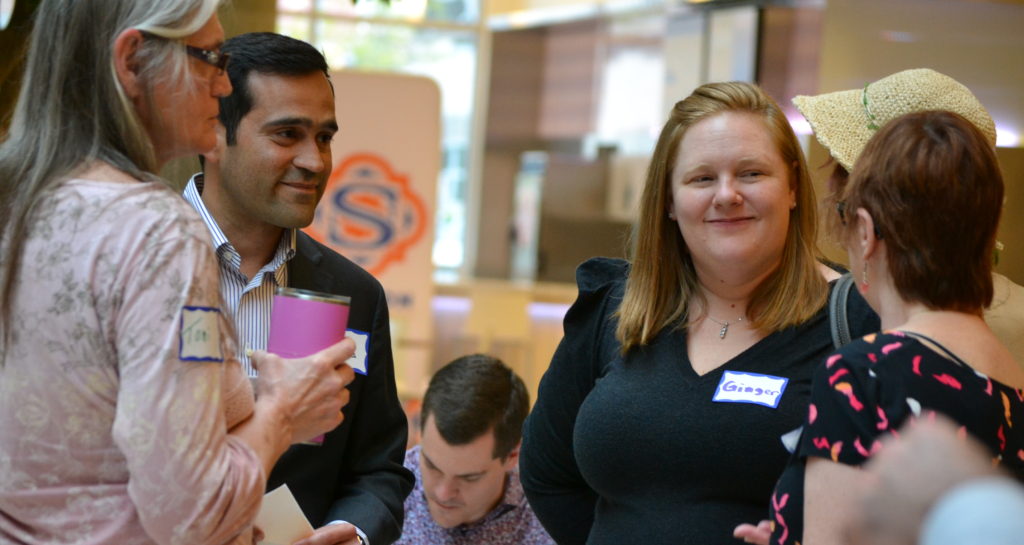
Based on community demands, the Learning Communities have been expanding and multiplying. During the first part of this rapid expansion, 1998 to 2005, only one full-time staff member, and founder of the Learning Communities, Dr. Seema Kapani, provided ongoing professional development for 785 participants by inviting 91 past Learning Community members to serve as participant facilitators. During the past 20 years, thousands of colleagues have participated in LCICE programs.
Will Clifton, a former graduate assistant and LI’s first staff member, told participants his learning path has been to recognize and accept his position in society (as a white male) and how to use it to improve the world with the work that comes out of the Leadership Institute.
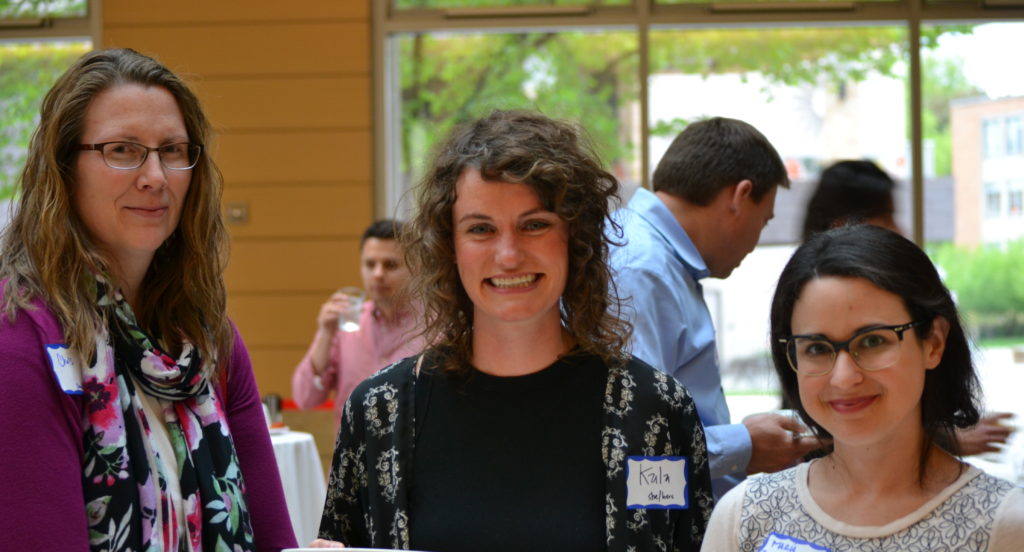
“We need this so badly. No workshop – no workshop — will ever do what we’re experiencing (in the leadership institute),” Clifton said.
“Every year that I participate in LI I learn something new,” Tena Madison said. “And the people that I go through the experience with become dear to me. They hold a mirror up to me and they encourage me to grow and become more of who I am. I’ve learned that my voice matters, my story matters. I’ve learned that I can hold multiple truths. ” “It takes time it takes effort, it takes vulnerability to the work, and that’s important.”
The community grows, but the work and commitment required to be effective doesn’t change.
“This is a journey that never ends, it is a lifetime work. The more you know the more you realize how much more you don’t know,” said Sandra Vega-Semorile. “Coming as a white-passingLatina from Peru many years ago, there were things I didn’t understand. Feelings I could not make sense of or place anywhere. The Leadership Institute gave me a toolbox. It allowed me to understand what I was feeling, but couldn’t express with words or concepts. This allowed me to speak up and make a difference in my own circles of influence. Sometimes I even surprise myself because it takes courage to challenge people. It is only thanks to the LI community and thanks to the work we have done that I am able to do it.”
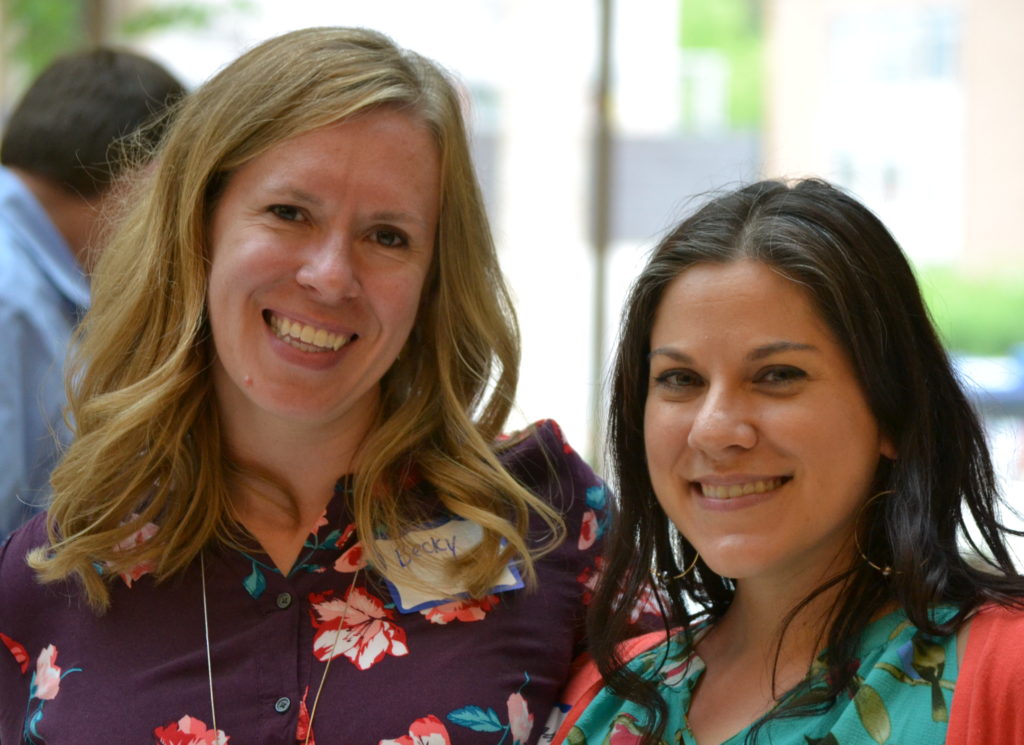
Last year the Leadership Institute pushed the pause button to take a year of Appreciative Inquiry on what was working best.
Seven years ago a new unit, Learning Communities for Institutional Change and Excellence (LCICE) was formed which is housed within the Division of Diversity, Equity and Educational Achievement (DDEEA). LCICE continues to provide educational and professional development programs, including LI, to the entire campus and beyond. The unit has six members. Alice Traore, Caitlin Yunis, Frieda Zuckerberg, Karin Silet, Seema Kapani and Stephen Montagna. However, LCICE programs still rely on past participants to continue offering the Leadership Institute and other LCICE initiatives. For more information onthe full scope of available LCICE programs, go to their website.
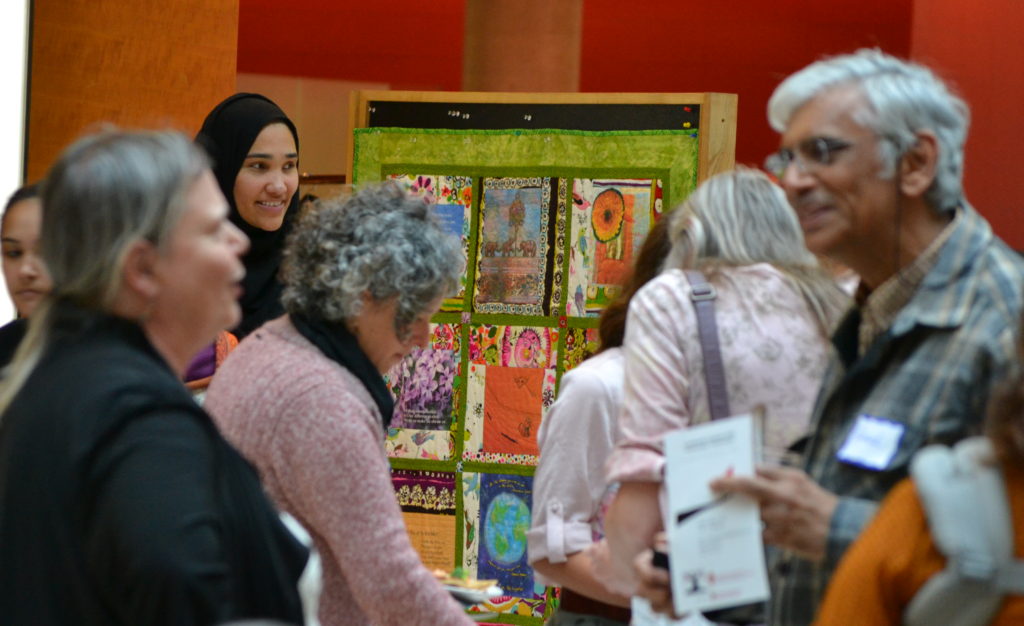
“We’ve made this huge sprawling campus a community within the Leadership Institute,” Kapani said. “Each and every one of you has taken your experiences, your thoughts, learning and unlearning with you wherever you went, because as my mother taught me, ‘wherever you go, there you are,’ ” Kapani said. “Go out there and change this world one person at a time in community.”